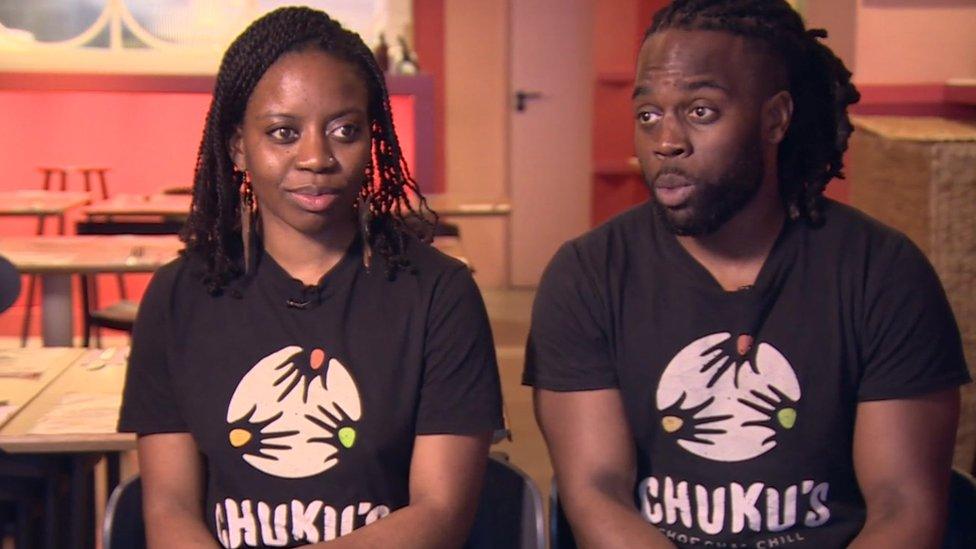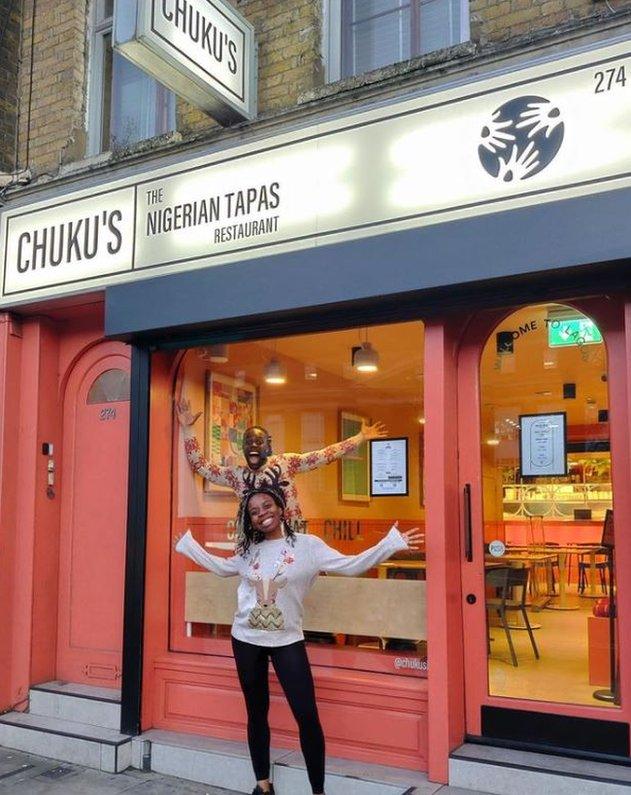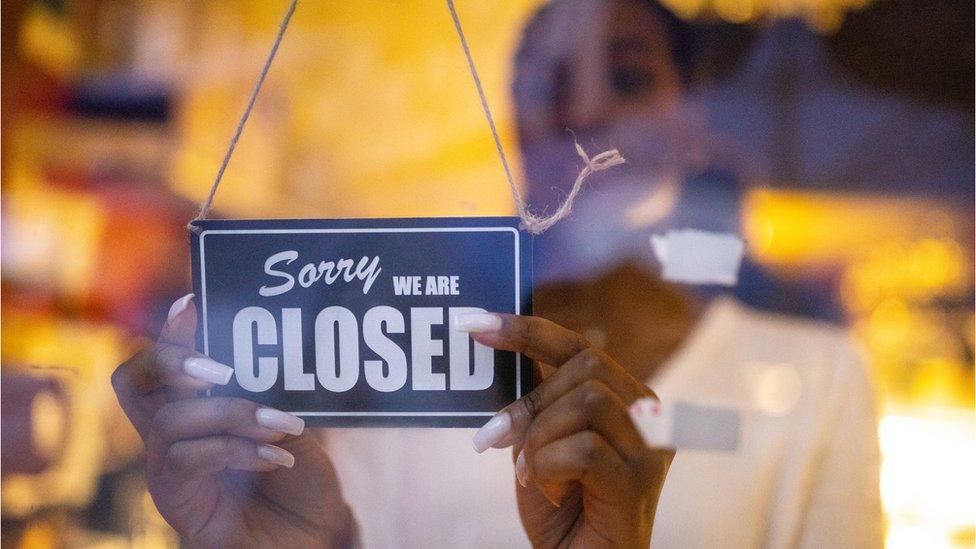Cost of living: London siblings social media appeal keeps restaurant open
- Published

Emeka and Ifeyinwa Frederick own Nigerian restaurant Chuku's in Tottenham
A family run restaurant has secured its short-term future using social media to ensure its survival into next year.
Siblings Emeka and Ifeyinwa Frederick appealed to their Instagram followers to achieve 600 bookings within a two-month period.
Within four days, they had achieved 680 bookings, which Emeka described as "a testament to the power of a community".
The UK's hospitality boss said businesses have to be smart to survive as energy prices and inflation rise.
Kate Nicholls said: "These businesses have been through a really torrent time these past two years, they're very fragile.
"One in three of them are not making a profit at the moment and not breaking even and a large number has sadly closed."
The pair who own Nigerian restaurant Chuku's in Tottenham, north London, set a target of achieving 600 bookings between 1 November to 31 December.
Their Six Week Charge campaign was focussed on asking followers to help keep "Nigerian culture in the capital".
Allow Instagram content?
This article contains content provided by Instagram. We ask for your permission before anything is loaded, as they may be using cookies and other technologies. You may want to read Meta’s Instagram cookie policy, external and privacy policy, external before accepting. To view this content choose ‘accept and continue’.
Emeka said: "There was not an expectation that it was going to be as successful as it was.
"It's gone beyond what we expected and it's testament to the power of community.
"Bookings are going up by the minute. It's been absolutely mental - huge massive thanks to everyone. It's blown us away."
Their restaurant opened in February 2020, five weeks before the first UK-wide lockdown.
Since then, they have struggled to keep their business afloat.
"There were shortages of supply, staff shortages, petrol shortages. There were lots of things that happened in this period and obviously as a new business there are also natural challenges of working out how to do it," Emeka said.
Ifeyinwa said: "It's been really difficult to keep going over the years.
"You're seeing restaurant after restaurant closing and your putting in all this work and you're seeing the numbers and there is a part of you that thinks 'am I being a bit of a fool here?'"

Chuku's opened five weeks before the first lockdown
Ms Nicholls added: "The hospitality sector is extremely vulnerable to energy price fluctuations and have been badly affected by the ongoing energy crisis.
"The soaring costs are hitting businesses that have not fully recovered from the pandemic, may be carrying substantial debt as a result, and are facing a downturn in consumer spend due to the cost-of-living crisis.
"The hospitality sector in London currently has a vacancy rate of 15%.
This means there are around 70,000 unfilled roles in the sector in London alone.
"We need the government to give struggling businesses breathing space, costs drilled down, we need an extension on business relief and we need support for staffing so businesses can be creative and flourish."
A Treasury spokesperson said: "We understand that people are struggling with rising prices, and while we can't shield everyone from the global challenges we face, we're supporting British businesses to navigate the months ahead.
"We've cut taxes for hundreds of thousands of businesses by increasing the Employment Allowance and slashing fuel duty.
"We've also introduced a 50% business rates relief for retail, hospitality and leisure businesses and put the brakes on bill increases by freezing the business rates multiplier, worth £4.6bn over the next five years."
Related topics
- Published28 July 2022

